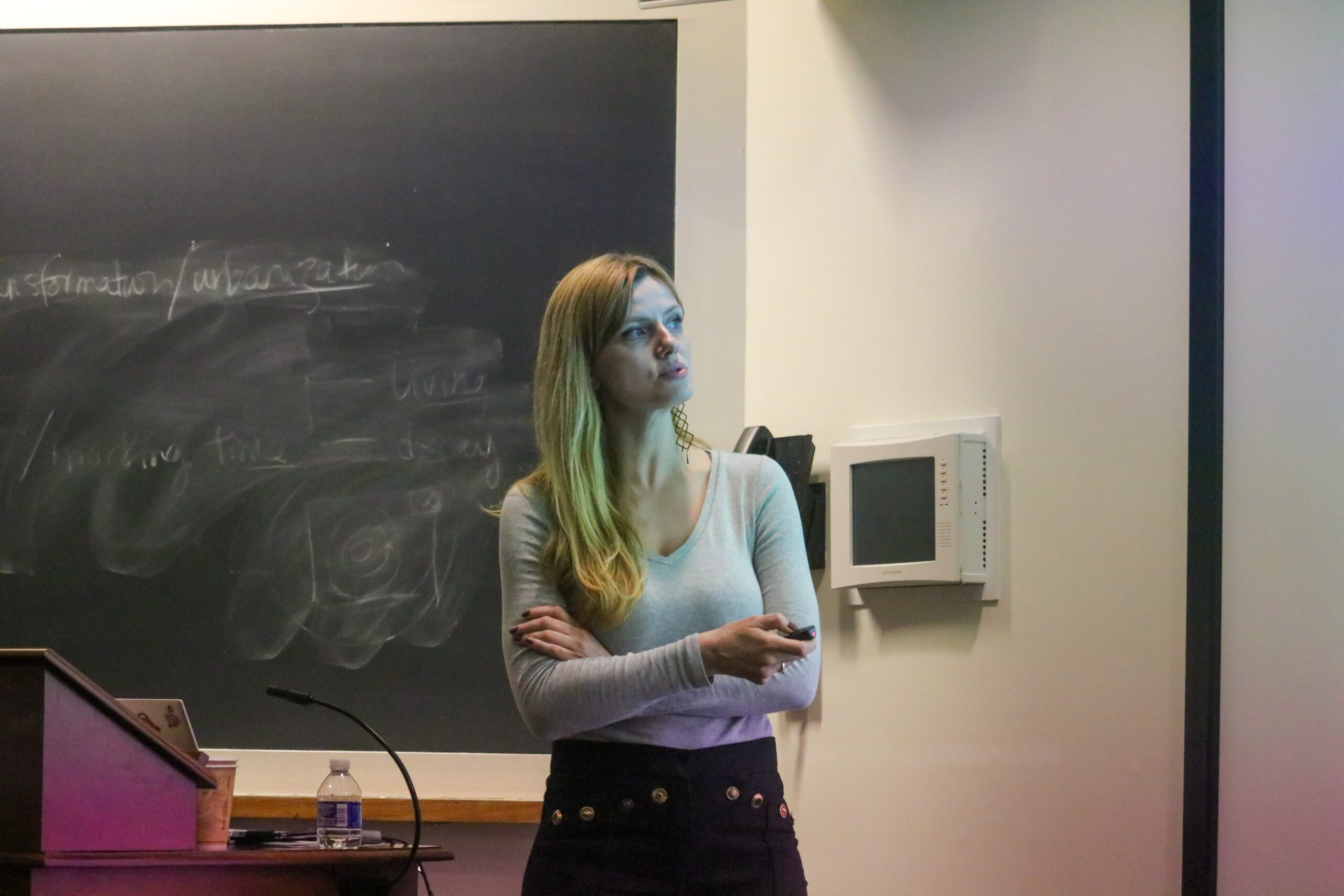Cichocka explores the impact of narcissism on political landscape
April 14, 2023
 Emily Campbell
Emily CampbellAleksandra Cichocka, a professor of political psychology at the University of Kent in Canterbury, U.K., believes that psychology has failed to account for narcissistic behaviors in rising right-wing populists.
In the VAC Beam classroom Monday, Cichocka explained that for the past half century, researchers have largely believed that selfish desire is the primary motivator of human behavior.
“[Researchers] typically argue that especially those who have low self esteem—so low feelings of self worth—should be motivated to protect it,” Cichocka said. “So researchers argued that people should be more likely to embrace political conservatism to the extent that their self esteem is chronically low.”
Yet their assumption has not proven to be true, as much of the research trying to relate self esteem and political opinions have shown little to no correlation. However, Cichocka believes that former research failed to draw the distinction between self esteem and narcissism.
“Narcissism is not a personality disorder, but it’s a normal personality trait that can be relatively normally distributed in society, so we can argue that some people are more and others are less narcissistic,” Cichocka said.
Jason Olaru-Hagen ’25, who attended the lecture, found the concept of collective narcissism to be a convincing method of framing recent political turmoil.
“Collective narcissism makes a lot more sense than the self-interest framework,” Olaru-Hagen said. “A lot of people are actively voting against their own interests when they’re voting [for] some guy who’s just going to do tax cuts for the rich and erode social welfare programs. Lots of [Donald Trump’s] voters come from demographics where they would benefit more from a Democratic economic policy, but I think the collective narcissism comes in because instead [of] these voters having a rational self interest, [collective narcissism] ties them to Trump.”
Though collective narcissism is insidious, Cichocka added the caveat that many individuals are limited to this state by the microcosm of their environments.
“Individuals cannot be necessarily blamed for their shortcomings if they live in systems that basically frustrate their basic psychological needs,” Cichocka said.
Some walked away with a more cynical view of the current political climate in the United States based on individual actions.
“What I’ve learned is that we’re not rational creatures at all, and that even in a perfect society, people would be driven to make decisions based off basic instincts and emotions and not the logical calculus that you would like to imagine that every voter votes for their best material interest,” Olaru-Hagen said.
Cichocka ended the talk with a more hopeful note of trying to create systems to limit the psychological environment causing this political shortcoming.
“If we want to find antidotes for the erosion of social cohesion for the erosion of democracy, we really need to make sure that we create social systems that allow everybody to develop a more secure and authentic sense of individual liberty,” Cichocka said.

Comments
Before submitting a comment, please review our comment policy. Some key points from the policy: